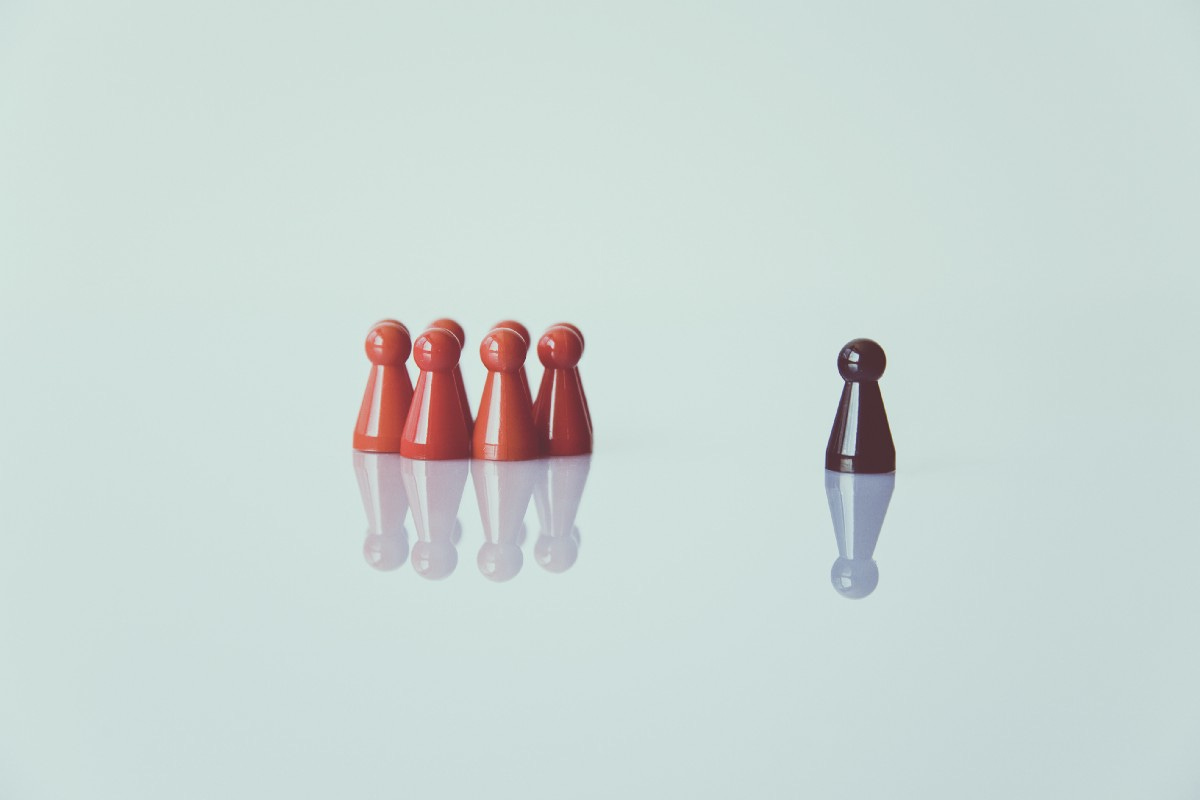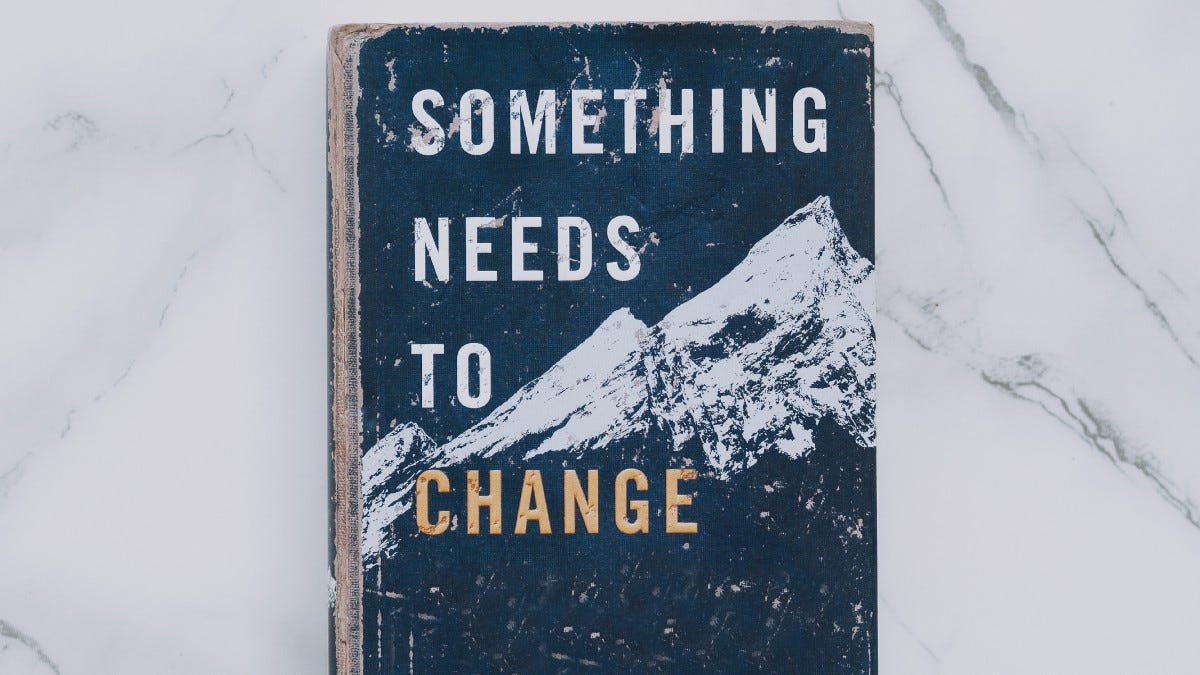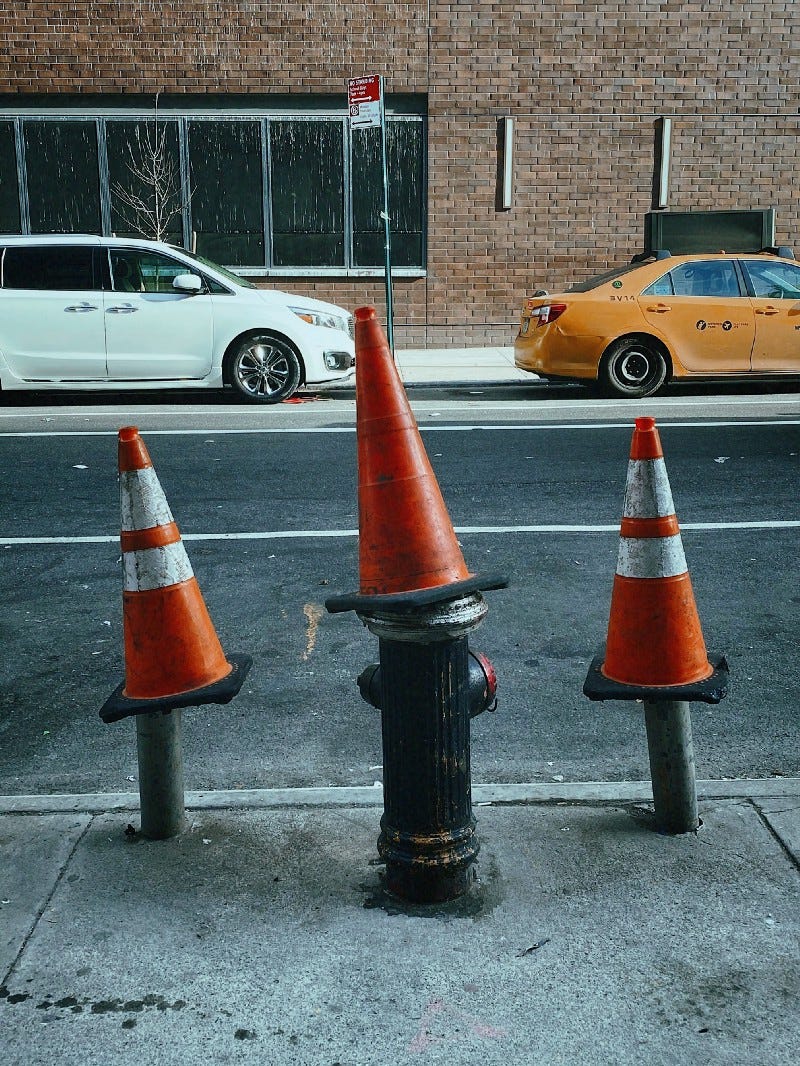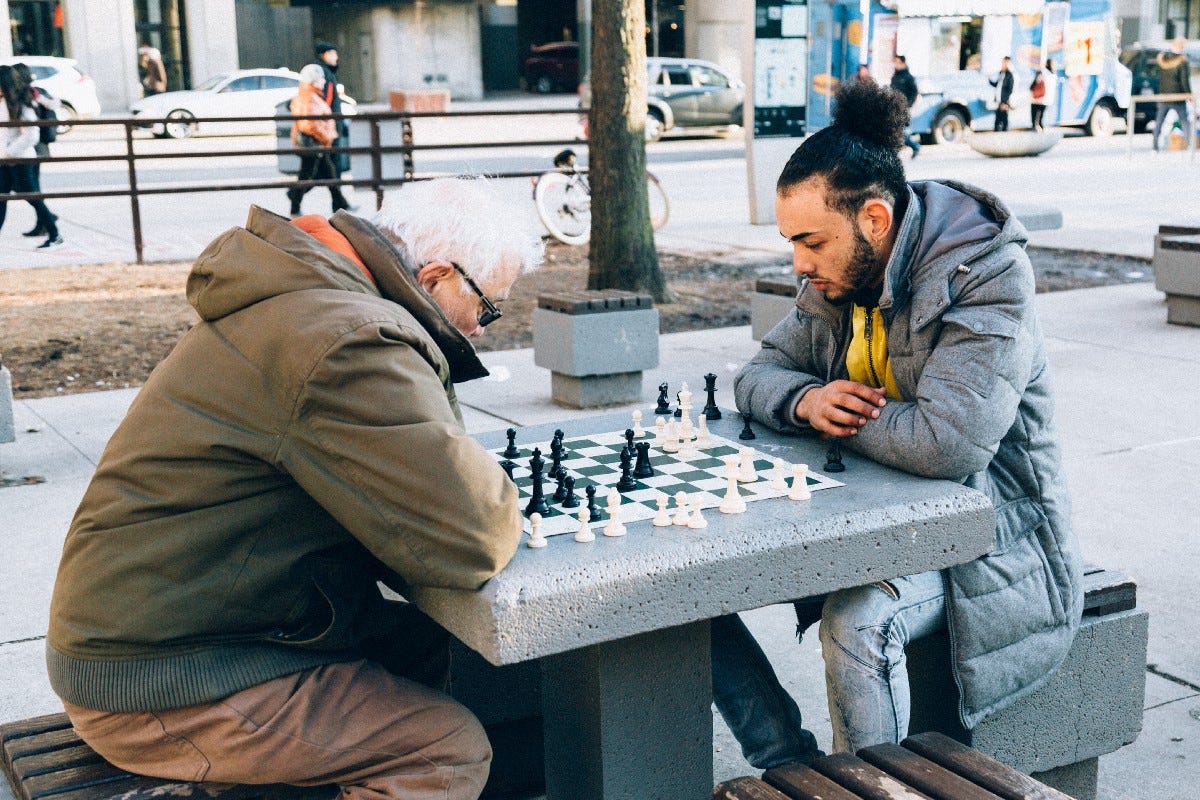Is this what leadership looks like?
Successful insights from real leaders to help guide us in these crazy times…
Life Lessons
Successful insights from real leaders to help guide us in these crazy times…

Photo by Markus Spiske on Unsplash
People have a tendency to be blind, deaf, scared, and upset.
Blind to wisdom
Deaf to insight
Scared by potential change
Upset for things out of their control.
People have a tendency to feel limited by others and limit themselves both internally and externally. Negative self-talk coupled by negative examples in our upbringing can both equally contribute to our dismissive reputation. If we cannot respect ourselves, we will forever fail to respect others. Some of us need a leader. Some of us need to lead.
I believe One of our greatest callings in life can be fulfilled through raising up a more harmonious society. No one wants to listen to the dissonant noise of anarchy. We all want to experience the visceral momentum building felt by an immaculate orchestra, where everyone plays together for the same shared goal — in beautiful harmony with each other.
… liberating people from societal chains in to catalyze social change
There are many challenges ahead
We must look ahead. We must look up. In order to prevent poor futures for all people on this planet, we must open our eyes to the issues, engage our ears in listening, and allow our hearts to empathize with the many stories of diverse people groups. I truly believe we each have something to give, and something to learn from one another. I call it a mutually beneficial tug of war. But for us to live in beautiful symbiosis, we must be able to work together for our shared goals. We must look up. We must look out.

Photo by Joshua Hibbert on Unsplash
Dan Heath writes about the complexities and challenges of transformational upstream thinking in his book and tactical toolkit titled Upstream, where he dives deep into the potential power in prevention. Compared to routine reactionary response, upstream thinking — similar to systems thinking — takes more time and attention from our brains. And many obstacles lie in our path that hold us back from preventative practice and maintaining this upstream perspective. For instance, when a tree branch falls after a storm and blocks half of the road I take to work and school each day, I could simply pull off the road and move the branch to prevent a potential accident for myself and many others.
But, when I deal with scarcity of resources like time, patience, education or mental bandwidth, I’m much more likely just to rush by the branch on my way to work because I’m already running late. Without adequate “slack” as Heath puts it, I lack the potential to work upstream in my problem-solving behavior. Before I can really take action to prevent future poor outcomes for myself or prevent bad things from happening to others in the system, I must first build and support my foundation.
First things first
You’ve probably heard it said it before, but priorities matter, especially during times of crisis. Any success in life, business, or family comes from noticing, acknowledging, and dedicating attention to our priorities. As humans, we each have very specific and shared priorities. Take Maslow’s Hierarchy of Needs for instance: physical needs (food, water, shelter), safety (in reality and perceived), social (support, love, belonging), self-esteem (recognition, positive self-image, self-respect), self-actualization (human creativity, potential, liberation). We cannot leap off the mountain until we reach the top, and many many things weigh us down.
Ten years ago today (thank you Facebook), I found a quote by Robert J. McKain that I immediately loved. “The reason that most major goals are not achieved is that we spend our time doing second things first.”
If you don’t know Robert or have never heard of him, he wrote one of the most potent books on this exact topic. Realize Your Potential was written way back in 1975, after the movement of Civil Rights in the late 60s, but still remains incredibly important for us to consider today. I still believe that each of us have something extraordinary held within us, sometimes locked inside, oftentimes left unacknowledged and unappreciated.

Photo by Bluehouse Skis on Unsplash
Honestly, how could anyone hold onto self-respect when society treats her like dirt, suggests she deserves no sense of self-worth, or places obstacle after obstacle in her path along the journey to self-actualization. Human potential should not be given an artificial ceiling, neither should it be chained down my unequitable systems of society (such as systemic racism or xenophobia) that prevent its growth and achievement.
“If I can’t make my rent payment, let alone pay the water bill this month, how am I supposed to invest in myself enough to believe I am worth something more than my absent parents instilled me while growing up?”
Hopefully by now you see where I’m coming from and I don’t have to go on and on about this issue. Simply put, if I don’t have my first priority needs met, I’ll never be able to achieve my fullest fulfilling human potential.
Offense or Defense
No matter if you play a sport, participate on a team, or help lead a company, you understand what it means to play offense and what it means to play defense. When you play offense, you have the momentum; you might have home field advantage or might have the ability to lead the charge going forward. You are directing the trajectory of game, the match, the system at play. When you play defense, you’re at risk of losing, you may even feel scared or fearful, unable to think critically or overcome your opponent’s momentum. In chess, and in life, playing defense is not the most exciting position to play. Defense is often riddled with fear, forced to think on their feet, and lack the opportunity to respond critically and creatively to overcome the berating pressure of the offense. Imagine a roaring fire hydrant broken from a car that lost control on the road and plowed right into it. The hydrant is profusely spewing into the street and dangerously close to your home and also your neighbors.

Photo by Jon Tyson on Unsplash
You attempt to resolve the issue with immediate action by capturing the water in a bucket and pouring the bucket into the street drain. No matter how hard you try to fix the immediate problem, you cannot. You end up exhausting yourself, losing the match against the spewing water. Your home floods and so does your neighbors. You were simply playing defense as best as you could in that immediate reaction. You couldn’t act upstream, let alone think upstream. You had to act fast to prevent losing your home to the flooding water. And even though you failed, you didn’t even have the potential to fix the problem. It was out of your control, and you were simply ill-positioned to fix it.
A better candidate for solving this issue would have been your neighbor’s above ground swimming pool perhaps, or even the city water and safety systems. Perhaps they could have helped you since they had greater power and resources to capture the spewing water and also work upstream to close a valve upstream to prevent more water rushing to that hydrant. Sadly, all you could do was frantically play defense, with fear and stress until you reached exhaustion, and yet you still were overcome by the pressure. It’s simply not your fault.
Robert F. Smith, founder, chair, and CEO of Vista Equity Partners, suggests that not everybody has the chance to play offense. While many people play the same game, there’s seems to be a prevalent trend of who gets to play offense and who is forced to play defense. I would go one step farther to suggest that everybody deserves the chance to play offense. Everybody deserves the chance to reach their potential, with freedom to flourish without fear or stress. Smith is passionately invested in empowering people to realize and reach their “beautiful creative potential” as he puts it. This is partly what led him to help pay off student loans for graduates of “[his] class of 2019” from Morehouse College.

Photo by Marleena Garris on Unsplash
An incredible act of heroism some would argue, and yet he might regard it as just a small ripple in a much larger pool. His opportunity to relieve the overwhelming and limiting pressures of debt for the class of 2019 is in fact an incredible act of philanthropy and deserves to be respected as such. Will it lead to a more prosperous, communal future we can all benefit from? We would like to think so. Frankly, why not be an optimist and believe so, I personally choose to believe in the unquantifiable impact of human kindness and generosity. I should know from firsthand experience being beneficiary of many dollars and dedicated services of support over the years to help me trudge through high school, college, and even my master’s degree from Ball State University — home of Beneficence no less. I know I wouldn’t be anywhere near where I am today without the support of others. And I still don’t think anyone has reached success alone. We each need support, and we each have the opportunity to support someone else.
Liberation for all
Another noteworthy character for us to consider at this time is that of Jesus Christ. Defined by love, endless love and a relentless heart to call upon the liberation of each and every person’s spirit, Christ was a philanthropic leader. Love unconditionally, for he gave willingly and freely without need for us to earn or deserve. Unconditional love, the kind without clause, without amendment, without fine print or maleficent or selfish intent. Just as Smith gave unconditional sacrifice of his own money to alleviate the stressful pressures of debt, we each have resources to offer. Likewise, you too can be an investor in the future. Christ himself was an investor in people and their futures — without harsh pressures of forcing their character to change, rather — he focused his efforts on liberating people from societal chains in to catalyze social change. How interesting would it be if we considered Christ’s life present with us today? I just wonder what readers could come up with if they considered the old cliché, WWJD?
Beyond paying for our student loans, I believe Jesus would call us to respond to our world, to act in kindness to our neighbors, to love one another as he so loved the world. We would be internally motivated to perform random acts of kindness and generosity as normal routine behavior. We would no longer remain blind, deaf, and dismissive of systemic discrimination. I would like to believe we would stand up for what we believe in, speak up for those who don’t have the chance to play offense, and work together to stop the hydrant from flooding the whole neighborhood.

I believe we all have a part to play. I believe, as I’ve said before, we’re all in this together. We can each act upon our own potential and empower and equip the potential of others. We can each be part of the driving force for change across America, in our towns and neighborhoods, and even around the globe. If you have a car, you can help someone who does not reach their destination much faster than they could achieve by their own two feet. As I said earlier, each of our decisions has local and global impacts; it would be ignorant to suggest they do not.
Is it really that hard to imagine a world where no one has to play defense, but rather we all play on the same team, on the same side, striving towards our shared goals?
This delves into what I believe we can at least envision in an ideal world, where we live, work and play in a beautiful symbiosis where I am consciously considerate of my decisions, their consequences and also their motivators. I am fully capable of recognizing cause and effects and am able to support my fellow human neighbors both locally and globally by being better connected. Once I can understand how my actions impact others, I can more diligently consider my decisions and choose wisely with passion and wisdom to help promote overall human capacity building around the world. I believe there is potential for this world to exist, especially in our growing digital age and shared internet of things. I want to do the best I can to support my neighbors, and I hope you do too.
And don’t forget — first things first.
We must acknowledge each human’s needs and help provide for those needs before any of us can reach our potential. If you have the resources to support someone else, no matter the sizable impact you can make, I encourage you to do so. Ask before you act, listen before you lead. Take the time to think about your decisions before you make those impacts. Maybe someday we will be able to return to our ordinary lives with extraordinary improvements. Maybe we could even play a friendly game of chess or checkers in the park and we’ll laugh over who gets to play as black and who gets to play as white. It’s up to us to paint the future as we see it, so let’s strive to imprint and make impacts with beautiful designs in mind. It’s time to get creative.
Crafting conversation I think worthy for us to have. We live in a crazy, undefined world. We really do need one another in order to live our best lives possible on this planet.
We Zig and we Zag our way to health and happiness.
If you want to stay in touch, or stay up to date with my work, feel free to follow me here on Medium, on Twitter, Instagram, or LinkedIn.
Also, feel free to share this message with your interested friends and family.
Thank you for reading! #ZigZagNutrition




